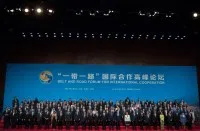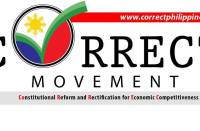In a rapidly changing world there exists a clear tendency among humans to cling on to that which is familiar and that which once was true. The desire to want to maintain that which is seen as set in stone during times of vast political, social and economic change is itself derived from a fear of the unknown. In geopolitics, such an attitude is especially dangerous because everything from policies, to strategies, to alliances are effected by rapidly changing events. If one cannot adapt to a changed reality by changing one’s policies, opinions, strategic positions and even one’s psychological approach to new issues, one will be attempting to solve today’s problems using yesterday’s solutions.
One of the reasons why nations that embrace the new multipolar realities of global power have achieved success in recent years is because of their ability to adapt and remain flexible in the face of new challenges. To understand the importance of adaptability, it is crucial to look at several case studies of multipolar minded government’s that have shown flexibility in times of great urgency.
Turkey
Ever since the middle of the 20th century, Turkey has been a strong US ally and a fellow NATO member since 1952. While many thought that the Turkey-US relationship would remain unchanged if not unchangeable, the last several years have proved otherwise.
In 2016, the relationship between Turkey and the US dramatically changed when a terror group whose leader the US has granted asylum staged a violent coup against the legitimately elected government of the Republic of Turkey. The Fethullah Terror Organisation (FETO) led by the US based cult style leader Fethullah Gulen, violently conspired against the Turkish state and attempted to overthrow Turkey’s President Erdogan in July of 2016. While the US under Barack Obama scarcely sought to condemn the act of supreme lawlessness, Russia was among the first nations to show solidarity with Turkey while it has been suggested that Russian intelligence informed President Erdogan of the impending danger, just prior to the coup. It is further suggested that this Russian tip-off may have helped the Turkish President to secure a safe position from which to rally patriotic Turks against traitors and terrorists.
Since then, Turkey has come to see Russia as an open, transparent and reliable partner with multiple convergent goals in terms of both economic growth and security issues. In spite of centuries of hostility, President Erdogan has realised that at a time when the US is openly backing the Syrian branch of the PKK, the YPG, while failing to bring terrorist kingpin Fethullah Gulen to justice, that partnerships to the east, even among traditional rivals whether Russia or Iran, will ultimately help secure a better future for Turks than that which could be derived from ignoring the anti-Turkish machinations of the US, just because in the past the US had been a more reliable partner to Turkey.
By opening his country up to multipolarity and insisting that both the US and EU must look upon Turkey as an equal and nothing less, President Erdogan has shown the ability to remain flexible and change his stances when the realities on the ground demand such a change.
Russia
Under President Putin, Russia has eschewed the inflexible ideologically driven policies of prior decades and has opened Russia’s diplomatic, economic, energy and security channels to new partners throughout the multipolar world. During the Soviet era, Moscow’s allies and rivals were clearly defined and they rarely changed but today, Russia has embraced a policy of win-win relations with all while provoking hostility towards none.
Few small or medium sized nations can say that they pursue a friendly policy among otherwise rivalling states while the US superpower in particular has grown increasingly inflexible in its foreign policy. By contrast, Russia is one of the few countries that maintains good relations with both Turkey and Egypt, Iran and Saudi Arabia, Israel and Palestine, Pakistan and India, Syria and its multiple antagonists, Armenia and Azerbaijan, India and China, Sudan and Egypt etc.
The Russian leadership has realised that a consistently ideologically driven foreign policy limits one’s options in terms of vital international partnerships. This is why while Russia does not seek to end any long term partnerships, but when the fundamental characteristics of a long time partner change, so too must Russia’s policies. This is why although India for example does not actively seek to provoke Russia, New Delhi’s lopsided alliance with the US has meant that Russia is actively looking to balance India’s pivot to Washington by developing an historically positive relationship with Pakistan.
Likewise, in the Middle East, Russia is one of the few nations with partnerships across multiple divides while in Africa, south east Asia and Latin America, Russia pursues a policy of friendship to varying degrees with all major and small powers while engaging in animosity towards none.
This flexible approach allows for the modern Russian superpower to balance out competing interests in order to de-escalate regional tensions all the while enhancing Russia’s economic standing and prestige throughout parts of the world that were in many cases on opposite sides during the inflexible Cold War era, while also cultivating mutual friendships among contemporary nations who are often antagonistic towards their neighbours while remaining friendly towards Russia.
China
China follows a supremely flexible course of action both in its approach to domestic reforms and international partnerships. China’s reformist former leader Deng Xiaoping once said, “I do not care if a cat is black or white, so long as it catches mice”. It has been this attitude which prioritises problem solving over stagnant platitudes of inflexibility that has led China to take the best elements of a command economy and combine it with the best elements of a market economy in the context of Deng’s market socialism. This has led to China elevating more people out of poverty than any nation has ever accomplished in modern history.
When it comes to more narrow problem solving initiatives, China is also able to move with the times rather than go against the grain. While China has a long term goal of floating the Yuan on open currency markets which in the medium and long term would lead to the appreciation of the currency’s value, because of the present US trade war, China has allowed the value of the Yuan to slip against the US Dollar in order to rectify some of the short term set backs inherent in any unwelcome tariff war.
Likewise, in foreign relations, China is always willing to conduct agreements on a bilateral basis that makes each side feel contended. This win-win model differs from the ‘one size fits all’ zero-sum mentality which guides both American and most European trade deals. In particular, the US tends to couple trade agreements with security and diplomatic arrangements, thus transforming weaker trading partners into de-facto economic and military colonies of the US superpower. By contrast, China never combines security and economic relations unless this is specifically requested from a partner and likewise, China’s ability to offer bespoke solutions to the issues that arise during the course of trading relationships mean that when working with China, one is working with a superpower partner that is able to compromise based on the terms dictated by individual issues which require individuated solutions.
DPRK
The DPRK is known for being one of the most closed, rigid and unchanging societies in the world. Yet under the leadership of Kim Jong-un, the country has charted a new course guided by the ability to remain flexible during negotiations while remaining true to one’s cherished national characteristics.
Not only has Kim Jong-un embarked on domestic economic reforms designed to gradually move the DPRK towards something that could eventually look like a Korean version of the Chinese market socialist model, but in terms of Kim’s foreign relationships, he has shown a pragmatic ability to abandon the ghosts of a very grim recent past that saw the DPRK violently assaulted by the US and its partners. Kim has forsook suspicion and caution against the background of a rapidly changing world that is becoming less hegemonic in terms of power structure and vastly more multipolar.
Within this contemporary framework, Kim has re-opened what had become a frosty relationship with China, re-doubled an all-weather relationship with Russia and for the first time in the history of the DPRK is openly conversing with a sitting US President but without surrendering the DPRK’s dignity and interdependence.
Kim Jong-un’s flexibility has seen his nation go from one that was isolated at the UN by all three superpowers to a nation now being actively courted by all three superpowers due to the vast economic potential within the DPRK’s society. Had Kim clung on to the mentality of the past, none of these positive accomplishments let alone the perspective for a formal end to the Korean War/Fatherland Liberal War would have been possible.
Conclusion
Only a fool would think that yesterday’s mentality and yesterday’s problem solving tools are fit to repair the problems of today. Furthermore clinging to consist views and action steps when the facts change is not sufficient to prepare one for the challenges of tomorrow. If one senses that the views of a political leader, diplomat, adviser or geopolitical analyst are changing, one must consider that the realities one is dealing with have changed and that as a result, one’s view must adapt and evolve accordingly. While emotions often take precedence over logic in certain difficult situations where problem solving is required, ultimately it is only through logic that one can attain the goal that one desires. This means that in all walks of life, an ability to work with that which is real rather than that which was formerly true is essential for any progressive endeavour.
Consistency is clearly a virtue in certain situations, but when it comes to the most challenging issues facing the world and the men and women on it - flexibility is a far more useful, meaningful and practical asset whether one is solving large or small problems.



